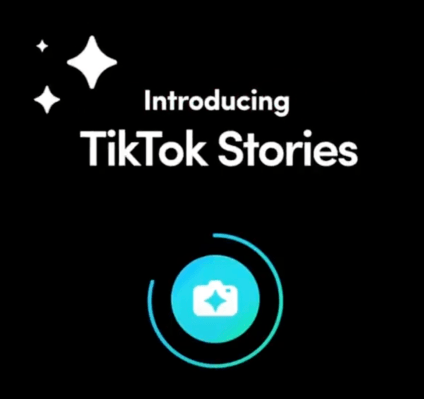Twitter may have shut down its Stories features known as Fleets, but the Stories format will continue to invade other social platforms. TikTok today confirmed it’s piloting a new feature, TikTok Stories, which will allow it to explore additional ways for its community to bring their creative ideas to life.
The company notes the new feature will be another option, in addition to its existing storytelling tools like videos, Duets, Stitch and LIVE — it’s not meant to replace them.
TikTok didn’t say how long the pilot test would run or whether it would result in a public launch. However, we understand the test has been running for several days, not weeks or months. It is available in a small handful of non-U.S. markets for the time being, with the goal of gaining insight and feedback from TikTok users.
The current set of features may or may not make it to the public product, we should warn.
The feature was discovered by social media consultant Matt Navarra, who is often among the first to find new features in social apps. In this case, he tells us that several tipsters brought screenshots of TikTok Stories to him, but it was initially unclear whether or not it was a hoax.
The timing, of course, was somewhat suspect — Twitter had just shut down Fleets in what was a fairly high-profile example of a failure to make Stories work on a social platform, despite their popularity on other popular apps, like Snapchat, Instagram, Facebook and even, as of late, Pinterest.
From the screenshots and videos of TikTok Stories in action, we see a product that appears to be, for the most part, something that looks familiar to users of Stories on other platforms.
Users can tap a camera button from the new navigation bar on the left side of the screen to create their first Story, then use common tools like those to add text or stickers, insert sounds and even use effects on their content. Like other platforms, users can either record videos or upload photos — the latter which opens up TikTok to take advantage of users’ larger camera rolls, rather than relying only on video.
Where TikTok’s version of Stories differentiates itself is that it allows users to comment publicly on the creator’s content. These comments are public, the app explains, as mutual friends can see each other’s comments. There is also another tab where you can see how many people viewed a given Story, and whether or not you’re following those users. A button will allow you to click to follow people back, if you choose.
TikTok’s Stories are also ephemeral and disappear in 24 hours, the app’s tutorial explains.
To view Stories from other creators, you can scroll through the new sidebar and tap on the creator’s avatar to watch their content. (This almost looks like a vertical version of Twitter’s Fleets bar, even down to the blue rings around creators’ profile photos.)
The addition of Stories offers TikTok users who don’t post with regularity (or at all) an easier way to start engaging with TikTok’s tools by getting started with a more comfortable and familiar format. It can also provide creators with a way to interact casually with fans in between their more polished and edited TikTok video posts.
But it also gives TikTok a much larger surface where it could eventually run advertisements, assuming it can first properly moderate the inevitable attempts at skirting its community guidelines that result from launching an “ephemeral” feature.
The feature is also a direct shot across Instagram’s bow, following the Facebook-owned app’s direct attempt to copy TikTok with Reels.
TikTok declined to say which markets, specifically, can try out TikTok Stories. Screenshots show the feature described in English and on Android phones, however.
Though Stories may have failed on Twitter, the platform isn’t known for being a home for rich, creative tools, like TikTok. Meanwhile, TikTok believes in exploring any creative tool that could allow its users to express themselves — whether that’s through video, livestreaming, interacting with others or now, through ephemeral, short-form content.


Recent Comments